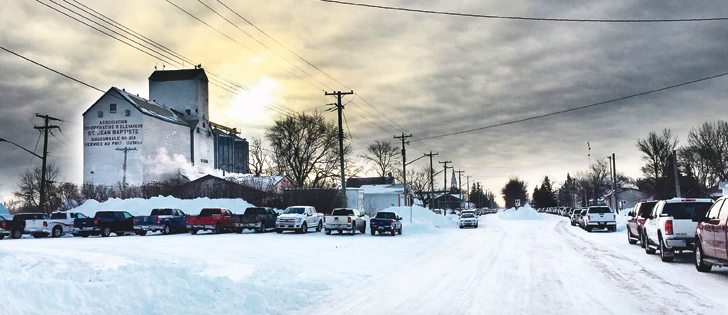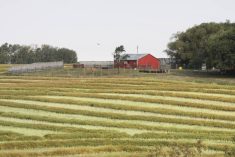Most of the province’s farmers say their service is poor and is getting worse; increased safety risks have been identified
The death of a man in the Rural Municipality of Alonsa, Man., in an Aug. 3 tornado has highlighted simmering anger among farmers and rural people over what they believe is worsening cellphone service in many areas.
Jack Furrie, 77, died when the EF-4 tornado hit his rural home. Since “upgrades” to local cell towers nearby earlier this summer, Furrie’s cellphone had not had service and could not have received the automated tornado warnings that are now meant to be received by all mobile phones in affected areas, according to grandson Kelly Brown.
Read Also

Nutritious pork packed with vitamins, essential minerals
Recipes for pork
The case underlines a wider problem. In many regions, farmers say cellphone providers are providing worse cellphone service following recent systems upgrades.
A question on Twitter brought dozens of responses from Manitoba farmers, most saying their cellphone service was poor and had worsened. All the main providers were mentioned. For some, the problem was mostly the annoyance factor, but others focused on increased safety risks when communications systems like cellphones fail to work.
As well, operating agricultural businesses is difficult when employees are inaccessible.
“Rural Manitoba cell service issues have all of us to the point where we are looking for an alt(ernative) method of communication. We have fuel/fert drivers, custom applicators, sales reps, working in these areas and have no way of contacting them or the customer. No Service,” tweeted Lyle Goldsborough of Dauphin Co-op.
Some farmers noted that data service might be better, but phone service feels like it is worse, with more dropped calls and weaker connections.
Keystone Agricultural Producers president Bill Campbell said the issue of worsening cell coverage came up at KAP’s recent advisory council meeting.
“If this is just a convenience service for cellphones (it’s not an essential service), but if we’re going to look at public safety and emergency measures, this is one of the only tools farmers have,” said Campbell.
“(Some) people that said they had decent service, now all of a sudden it’s patchy.”
He worries that service providers don’t take farmers’ safety seriously enough, seeing it as a commercial matter.
“Is it more of a financial return for them, as opposed to providing a service?” said Campbell.
“There needs to be some accountability.”
Farmers’ hopes had been raised by promises made by Bell when its bid to acquire MTS, the former provincial telephone monopoly and dominant rural carrier, was approved. Bell said it would pour $1 billion into network improvements.
That’s still its pledge and it believes its system has improved.
“We haven’t made any recent changes to our coverage in the areas you mentioned (a number of farming areas, especially along borders) that would affect service,” said Michelle Gazze of Bell MTS in response to a Western Producer query.
“But we are hard at work on improving wireless service across the province as part of our five-year $1 billion investment plan to bring advanced broadband communications networks across Manitoba.
“We’ve already upgraded almost 90 percent of our wireless network to LTE-Advanced, more than doubling our data speeds.”
There’s no question there has been much work on cellphone systems in towns and rural areas in recent years. But for farmers it’s far from clear that the situation has generally improved, especially in terms of emergency communications.


















